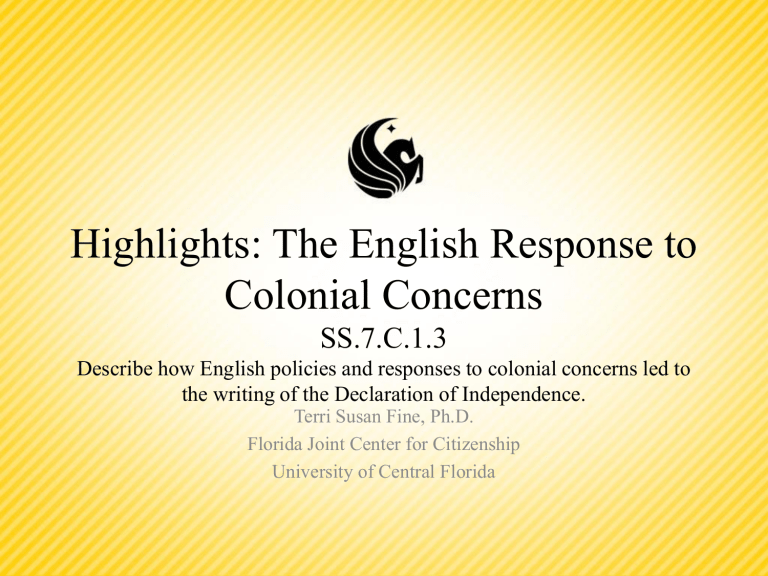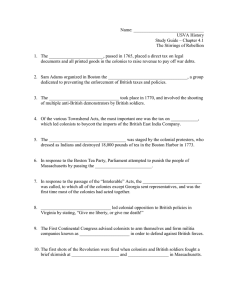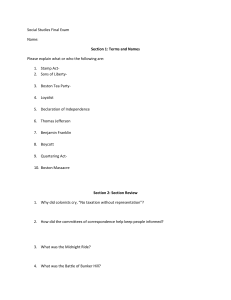English Colonial Policies & Declaration of Independence
advertisement

Highlights: The English Response to Colonial Concerns SS.7.C.1.3 Describe how English policies and responses to colonial concerns led to the writing of the Declaration of Independence. Terri Susan Fine, Ph.D. Florida Joint Center for Citizenship University of Central Florida Benchmark SS.7.C.1.3 Describe how English policies and responses to colonial concerns led to the writing of the Declaration of Independence. Benchmark Focus Trace the causal relationships between English policies, English responses to colonial grievances, and the writing of the Declaration of Independence Focus on those policies concerning taxation, representation and individual rights. Note that it was the colonists’ response to these policies that formed the basis for their desire for independence. Core Events Leading up to Independence Several events took place during the two decade period before declaring independence that inspired and motivated the colonists. 1763: The end of the Seven Years War (French and Indian War) resulted in significant debt for the British government. 1765: Parliament passed the Stamp Act which required that all printed materials be taxed including newspapers, pamphlets, bills, legal documents, licenses, almanacs, dice and playing cards. The money collected from the tax went directly to England. Stamp Act Political Cartoon The Townshend Acts (1767) and the Tea Act (1773) 1767: The Townshend Acts taxed many items imported into the colonies such as paper, tea, glass, lead and paints. In response, colonists decided to refuse to purchase (boycott), some of these items. 1773: Parliament passed the Tea Act which made the British East India Company the only company allowed to import tea into the colonies. In response to the Tea Act, a group of colonists boarded English ships in Boston and dumped hundreds of chests of tea into the harbor that same year (Boston Tea Party). The Intolerable Acts (1774) In response to the Boston Tea Party, Parliament passed a series of laws that the colonists called the Intolerable Acts. These acts included: 1. Closing the port of Boston until all Tea Party damage was paid back and putting Massachusetts under military rule 2. Making it illegal for royal officials to be brought to trial in the colonies. 3. Ending the colonial government in Massachusetts and allowing the royal governor to appoint the colonial legislature. 4. Ordering the colonists to house troops, even in colonists’ homes. The Call for Independence Thomas Paine’s Common Sense was published in 1776 (see Benchmark 1.2) This pamphlet advocated a movement for sovereignty of the people, a written constitution, and effective governmental checks and balances.




